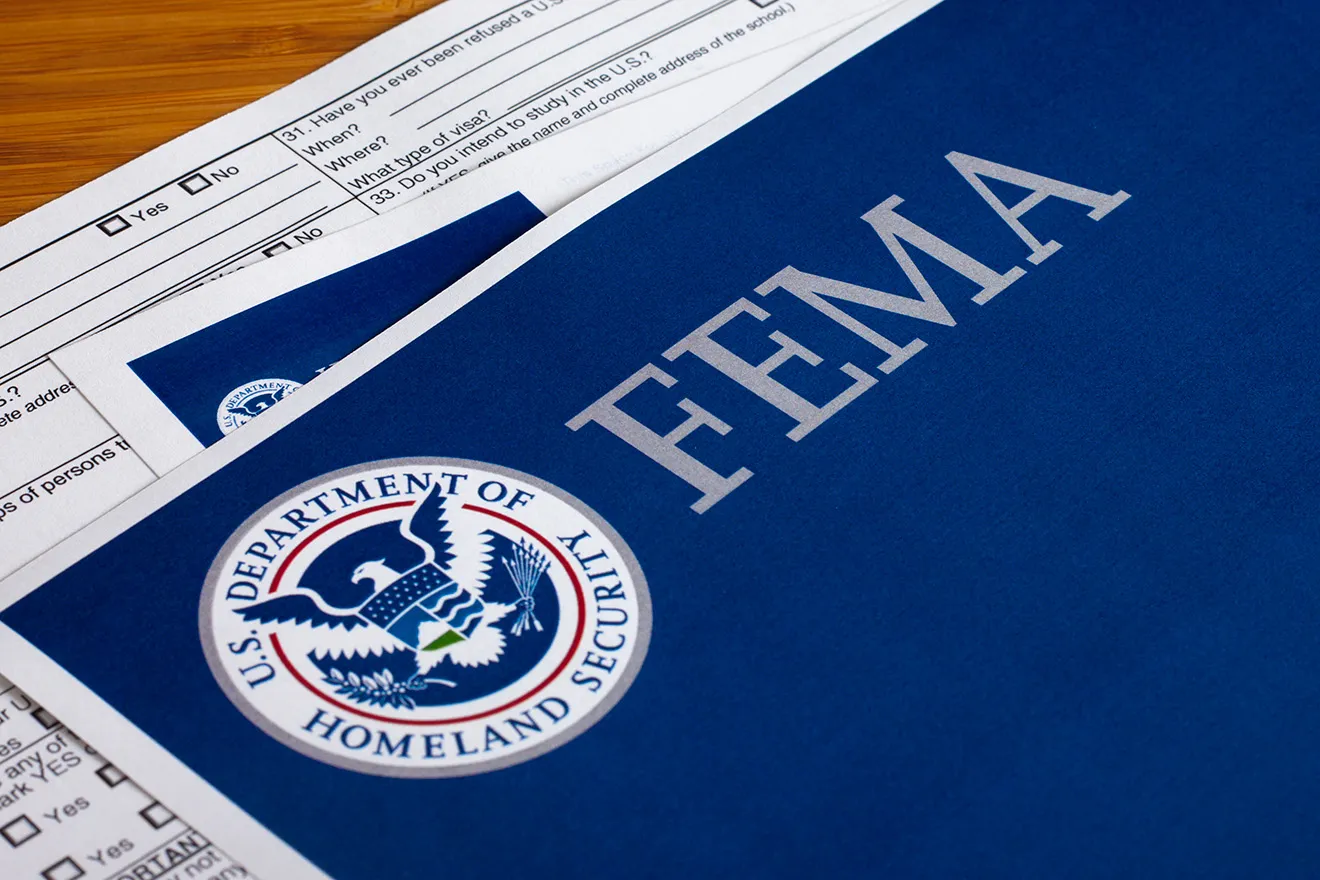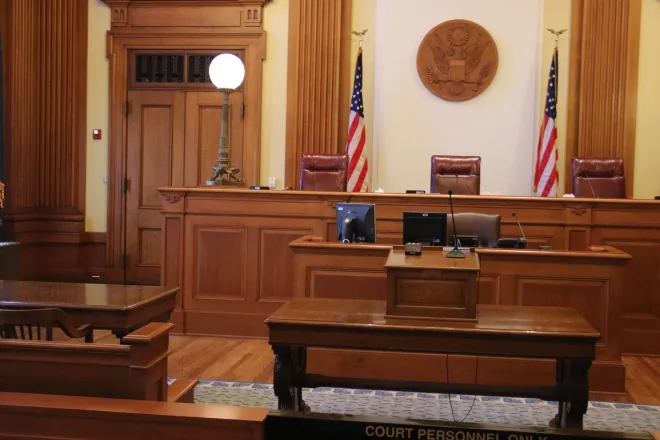
Daily Audio Newscast Afternoon Update - February 24, 2025
© INDU BACHKHETI - iStock-1336427297
News from around the nation.
Donald Trump will meet the French president, Emmanuel Macron, at the White House today, on the third anniversary of Russia's illegal invasion of Ukraine.; Anti 'processed food' push could backfire on GA, US plant-based products; Fraud-fighting experts warn of rise in scams after L.A. fires; Livestock industry flexes muscle over Democrat-controlled CO Legislature.
Transcript
The Public News Service Monday afternoon update.
I'm Mike Clifford.
In the first visit to the White House by a European leader since Trump's inauguration, Emmanuel Macron will use the meeting to try to convince U.S. President Donald Trump to maintain some degree of military involvement in Ukraine and, indeed, across Europe.
That from The Guardian.
They're reporting a call Sunday Macron and British Prime Minister Keir Starmer, who also will meet Trump at the White House on Thursday, agreed to show leadership in support of Ukraine and the importance of Ukraine being at the center of any peace negotiations.
The Guardian notes Macron will make the case for Europe to also have a seat at the negotiating table.
Trump has so far refused to offer any post-war security guarantees to Ukraine.
And efforts to curb people's intake of processed foods in the U.S. could have unexpected ripple effects on the plant-based food market.
We get this perspective from Georgia.
Health and Human Services Secretary Robert F. Kennedy Jr.'s "Make America Healthy Again" campaign targets processed foods, arguing they're harmful to public health.
But Anna Grumman, who leads the Stanford Food Policy Lab, warns that without a clear definition, policies could unintentionally lump plant-based foods, such as meat alternatives, with ultra-processed products like sugary drinks.
Warning labels and taxes tend to change people's behavior.
So if you put a warning label on a product, people on average are a little bit less likely to buy that product.
If you tax a product, people are a little bit less likely to buy it.
It's the same thing with food.
So if you put a warning label on a product, people on average are a little bit less likely to buy that product.
If you tax a product, people are a little bit less likely to buy it.
It's the same thing with food.
According to John Hopkins Research, Americans already consume more meat than the global average.
Shantia Hudson reporting.
This story based on original reporting by Grace Hussain for Sentient Food.
And scams are on the rise in the wake of the Los Angeles fires, according to a social media warning from the Pasadena Police Department.
There have been reports of people pretending to be fire victims approaching shoppers in store checkout lines and asking if they'll purchase items for them.
Kathy Stokes is director of fraud prevention programs with the AARP Fraud Watch Network.
People will tell you that they're in need and could you buy them baby formula.
They'll take the baby formula to the next store.
Let's say it's a Target.
Then they'll go to a different Target and return it.
Lots of GoFundMe pages have popped up after the fires, but experts say the safest way to help is to go through a trusted, established charity.
I'm Suzanne Potter.
And a bill that would exempt any Colorado livestock producers' personal information from the Colorado Open Records Act when they collect public dollars for livestock lost to wildfire is swiftly moving through the General Assembly.
Ryan Sedgley, with the Endangered Species Coalition, says hiding the names of anyone who receives taxpayer money isn't good policy.
Because when there is no accountability or transparency for who's receiving taxpayer money for damage, anybody can take advantage of that.
Proponents say the law is necessary to prevent potential harassment and scrutiny over how ranchers are working to keep livestock safe from wolves.
This is Public News Service.
Lessons learned during the COVID pandemic have proven crucial to one organization responding to Hurricane Helene.
Centro Unido, which serves the Spanish-speaking population in McDowell County, stepped up its services during the pandemic to provide testing, vaccine clinics, and easy-to-understand information.
It also offered financial assistance to help Western North Carolina families avoid evictions and utility disconnections.
Centro Unido's interim executive director, Laura Zapater, says they learned a lot during the COVID response that is useful today.
It was really helpful in the way that we could quickly organize after Hurricane Helene because we knew that our community was going to struggle more than other communities to receive the resources and the support needed.
Zapater says people in the community were lined up at their door as soon as Centro Unido had power again after the hurricane.
The group is still helping with hurricane relief, although she notes the change in presidential administrations has put new strains on their work.
I'm Eric Tegethoff reporting.
And the future of a teacher training program in rural Nebraska is in danger.
The program is known as RAICES, or ROOTS in English.
It's designed to recruit would-be teachers from rural Nebraska communities, train them, and place them in their hometown classrooms.
Ted Haman, a professor who helps oversee the program, says it connects the communities to their schools and the people teaching their kids.
Obviously it has teach-to-read, teach mathematics, academic content, but it's also the friendly face that welcomes teachers at a parent conference.
All of the features about making school part of the infrastructure of a community being healthy.
The RAICES program aims to create and retain teachers who better reflect and understand the student populations they serve.
But the recent federal cuts to diversity programs have placed it in jeopardy.
Haman says the cuts will mean a loss of funding for 16 student scholarships, about $450,000.
I'm Mark Moran.
And finally, it looks like at least some Indiana farmers will be getting the federal dollars they'd counted on for farm conservation and soil health.
More than 1,100 Indiana farms are part of those programs to help fight climate change.
On Friday, the U.S. Department of Agriculture announced it would release funds for those farmers who already have contracts.
Russell Taylor is with a company that makes natural soil amendment products.
He says the funding freeze has forced the U.S. Senate to pivot on some big issues still to be resolved.
Some of these freezes for funding and those items are really causing things that should have been working or in the works to be halted, such as farm bill.
Some of these things are just going to be delayed a little bit further out in the year, but there should still be optimistic progress for things like getting a farm bill passed.
I'm Terry Dee reporting.
This is Mike Clifford.
Thank you for starting your week with Public News Service.
We are member and listener supported.
Hear us on interesting radio stations, your favorite podcast platform.
Find our content and trust indicators at publicnewsservice.org.

















